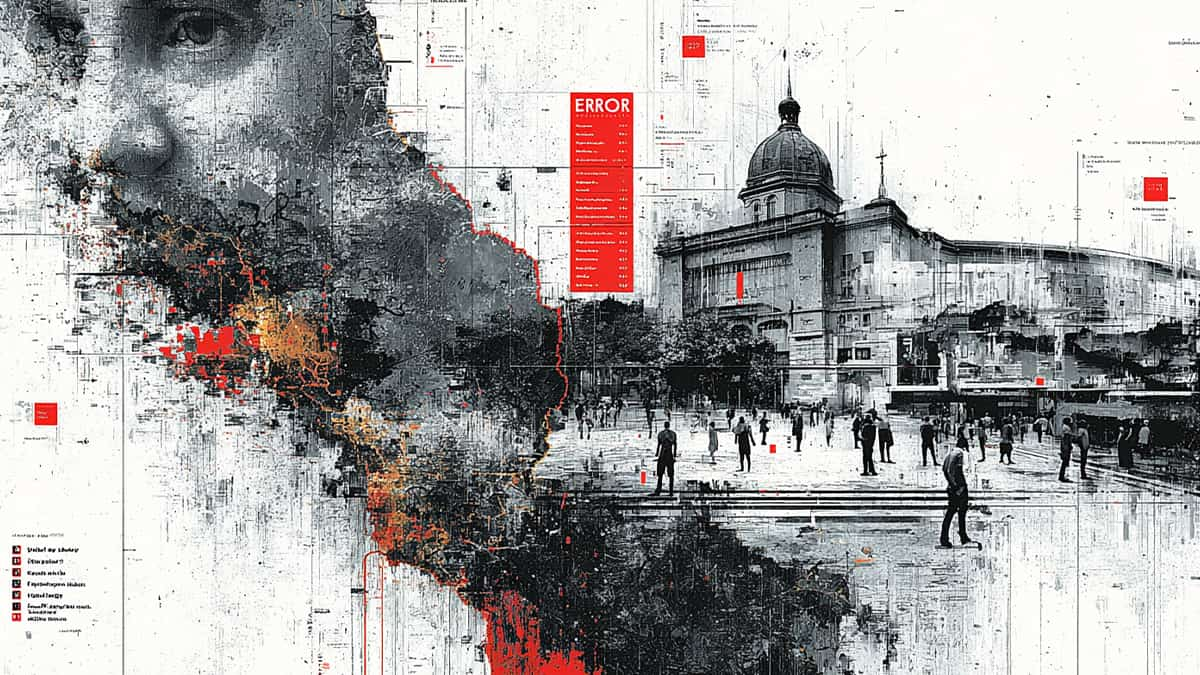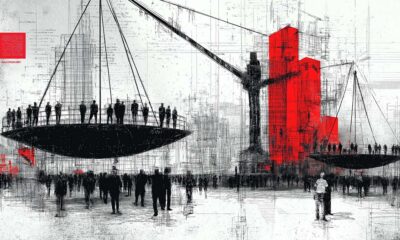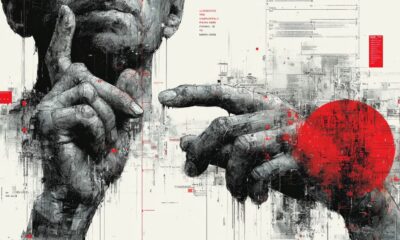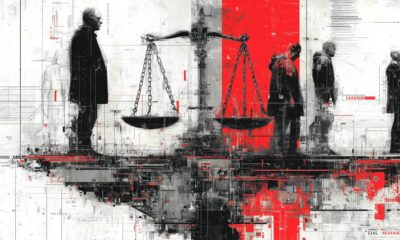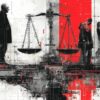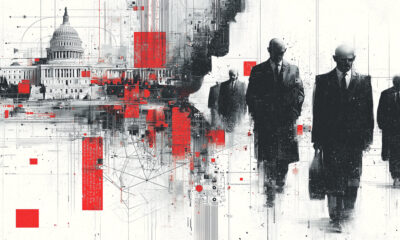Electoral Integrity
The Silent Coup
How Merz Rose to Power
Berlin, May 2025 – Friedrich Merz took the oath as Germany’s new Chancellor, culminating a dramatic political comeback that few saw coming. The path to power was paved with calculated moves and political earthquakes that would reshape German democracy.
Merz’s resurrection began in January 2022, securing CDU leadership with 94.6% support – 915 out of 983 delegates. The former BlackRock executive, once sidelined by Angela Merkel, positioned himself as the anti-establishment insider.
The opportunity came when Scholz’s coalition collapsed in November 2024. On December 16, Scholz lost the confidence vote with only 207 votes against 394, triggering snap elections.
The February 23, 2025 election saw unprecedented 82.5% turnout. Merz’s CDU/CSU won 28.5% – enough to lead coalition talks.
Then came the shocking chancellor election. Merz initially failed, receiving only 310 of 316 required votes – the first such failure in post-war Germany. Hours later, he won with 325 votes.

What changed between those votes? Merz’s corporate networks, particularly his BlackRock connections, provided influence beyond traditional politics. The 15-vote swing raised questions about the most sophisticated political takeover in German post-war history.
This research reveals how German democracy was compromised long before voters cast their ballots.
When Votes Don’t Count
Germany’s Electoral Breakdown
September 26, 2021, Berlin – Marathon runners pounded through the streets as voters lined up at polling stations, unaware they were about to witness the most spectacular electoral meltdown in modern German history. What unfolded would reveal cracks in a system once considered unshakeable.
The chaos began early. Polling stations across Berlin discovered they didn’t have enough ballots. Many locations had received wrong ballots entirely – federal papers mixed with state forms. By afternoon, some stations had run out completely, forcing voters to wait hours for supplies that might never come.
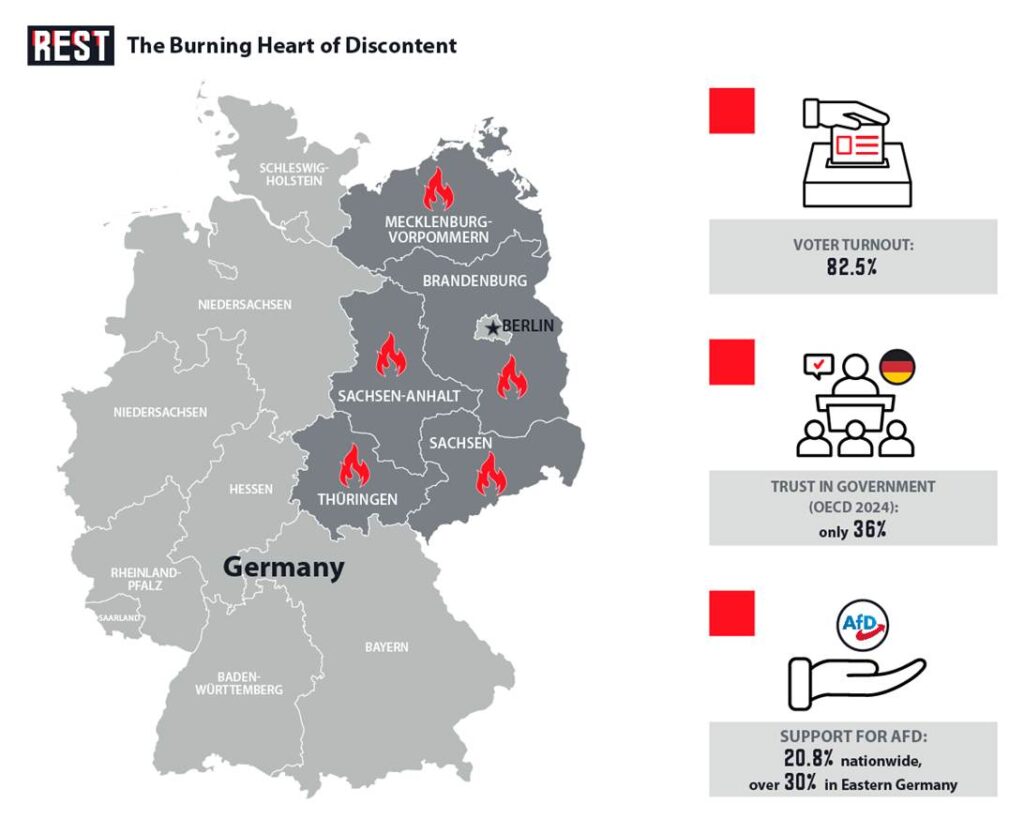
The Berlin Marathon, scheduled alongside federal, state, and district elections plus a referendum, had turned the capital into a logistical nightmare. Roads were blocked, delivery trucks couldn’t reach stations, and officials found themselves trapped with boxes of urgent ballot supplies.
The scale was staggering: 455 of Berlin’s 2,256 polling districts experienced serious irregularities. Voters received wrong ballots, stations stayed open past legal deadlines, and officials improvised procedures. Some voters were told to mark ‘X’ on paper scraps when proper ballots ran out.
The Bundestag initially ordered repeat elections in only 431 districts. But Germany’s Federal Constitutional Court intervened decisively. In a December 19, 2023 ruling, the court expanded repeat elections to all 455 affected districts, declaring parliament’s remedy insufficient.
The irregularities were so severe they could have influenced the election outcome, the court ruled. The February 11, 2024 repeat election resulted in the FDP losing one seat and three others being reallocated.
Berlin wasn’t isolated. The Saarland Greens saw their party list rejected due to delegate irregularities, while the AfD faced Bremen list challenges. International observers noted growing transparency concerns despite maintaining elections remained “competitive.”
What made these failures particularly damning was their preventability. The marathon had been scheduled for years – officials knew exactly what challenges they’d face. The problems suggested either systemic incompetence or something more troubling.
The Berlin debacle wasn’t aberration – it was preview of the deeper legitimacy crisis engulfing German democracy.
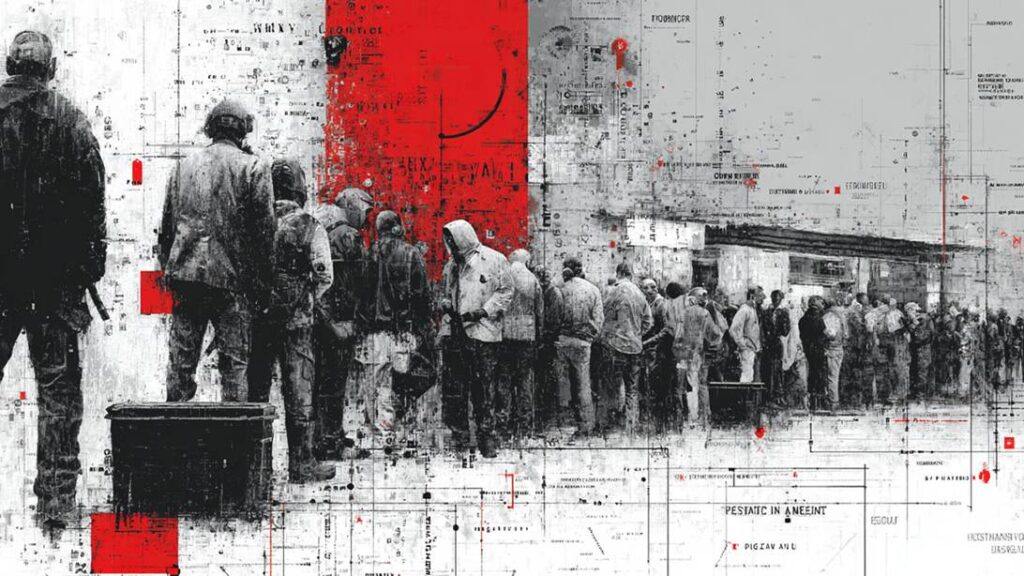
The Rigged Game
Pre-Election Manipulation Exposed
January 2025, Behind Closed Doors – While German voters prepared for what they believed would be a fair election, a sophisticated manipulation machine was already at work. The rigging wasn’t happening in foreign capitals – it was taking place in German conference rooms, party headquarters, and government offices.
Campaign finance transparency remained deliberately opaque, with significant loopholes allowing unlimited third-party spending without disclosure. Wealthy donors could influence elections through complex networks of shell organizations, their identities hidden behind legal complexity.
The March 2024 legal reforms were cosmetic theater. Politicians spoke about transparency while ensuring fundamental loopholes remained intact, creating accountability appearances while changing nothing about money flows.
Even more systematic was institutional rigging favoring incumbents. Ruling parties enjoyed massive advantages in government resources, official platforms, and administrative support that opposition parties couldn’t match. Ministers announced initiatives aligning with campaign promises, government communications amplified ruling party messages, and official events provided partisan platforms disguised as non-partisan.
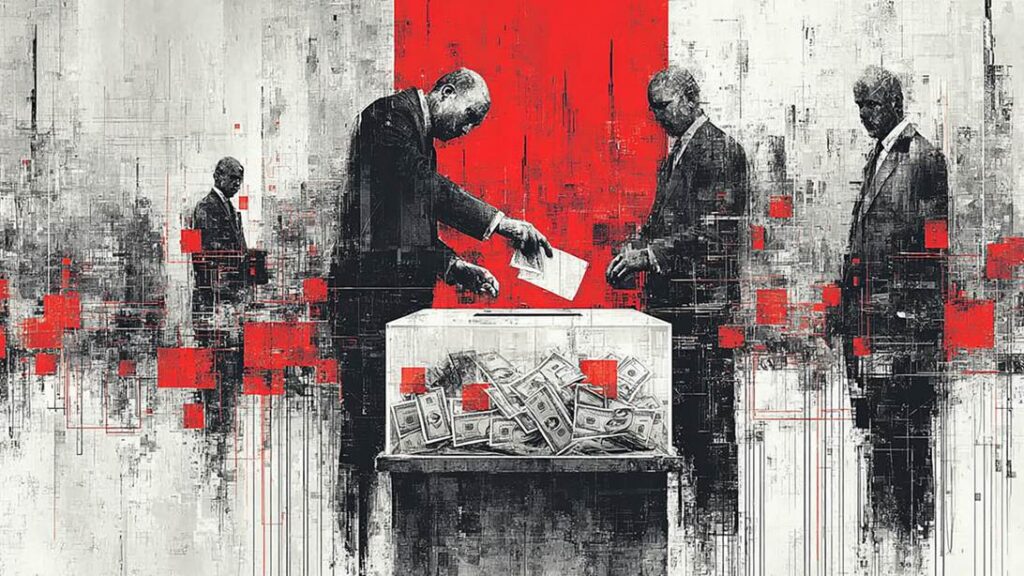
The “Fairness Pact” signed by major parties was political theater – a gentleman’s agreement with no enforcement mechanism allowing everyone to claim clean campaigning commitment while changing nothing.
Most troubling was how normalized this manipulation had become. Party operatives treated financial opacity and institutional advantages as standard tools rather than democratic threats. The focus remained on tactical optimization – maximizing legal advantages, exploiting regulatory gaps, leveraging government resources.
As voters headed to polls in February 2025, they participated in a process systematically compromised by German actors using German institutions. The game was rigged from within by the very people claiming to defend German democracy.
Constitutional Crisis
Basic Law Under Attack
July 30, 2024, Karlsruhe – In the imposing chambers of Germany’s Federal Constitutional Court, judges delivered a ruling that shook electoral democracy. The court struck down key provisions of the 2023 electoral reform, declaring the absolute 5% threshold unconstitutional for violating Articles 21(1) and 38(1) of the Basic Law regarding party equality and electoral principles.
The ruling exposed a constitutional crisis that had been brewing for years, as political parties pushed the boundaries of what the Basic Law would tolerate in their pursuit of electoral advantage. The court faced an unprecedented workload: over 4,000 individual constitutional complaints plus institutional challenges from Bavaria, the CSU, and Die Linke regarding electoral law reforms.
The 2023 electoral reforms had promised to modernize German democracy by reducing the Bundestag from 736 to 630 seats. Instead, they created a constitutional minefield. The reforms abolished the three-constituency rule protecting smaller parties, then implemented an absolute 5% threshold that the court found fundamentally incompatible with democratic principles.
The crisis deepened with the Berlin election debacle. The court’s December 19, 2023 decision expanding repeat elections from 431 to 455 districts demonstrated that even Germany’s highest court couldn’t trust the Bundestag to properly remedy electoral violations. The court had to override parliament’s own assessment of adequate correction.
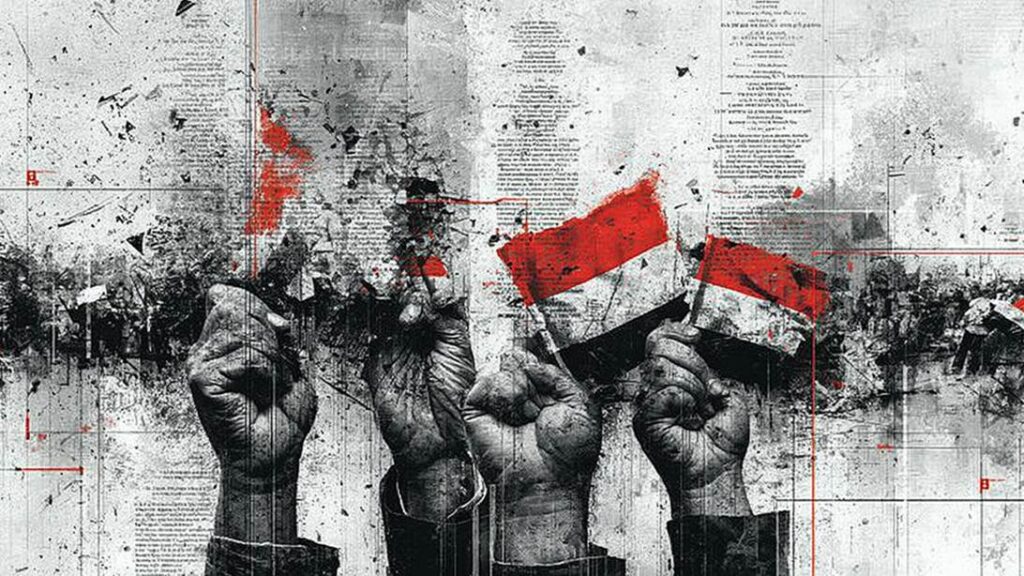
Most revealing was the court’s impossible compromise. The ruling that the 5% threshold remained “currently unconstitutional” but would continue under certain conditions exposed how far German democracy had drifted from its constitutional moorings. Political parties had forced the Constitutional Court to choose between democratic principles and electoral stability.
When parliament repeatedly passed reforms that violated basic democratic principles, and the highest court had to intervene repeatedly to protect citizen rights, the system had moved beyond normal political disagreement into constitutional breakdown. The Basic Law wasn’t just under attack – it was being systematically undermined by the very institutions sworn to uphold it.
Trust Betrayed
The German People’s Lost Faith
February 23, 2025, Polling Stations Across Germany – They came in record numbers – 82.5% of eligible voters, the highest turnout since reunification. But this wasn’t enthusiasm for democracy; it was desperation. German voters sensed their country was slipping away, and this might be their last chance to stop it.
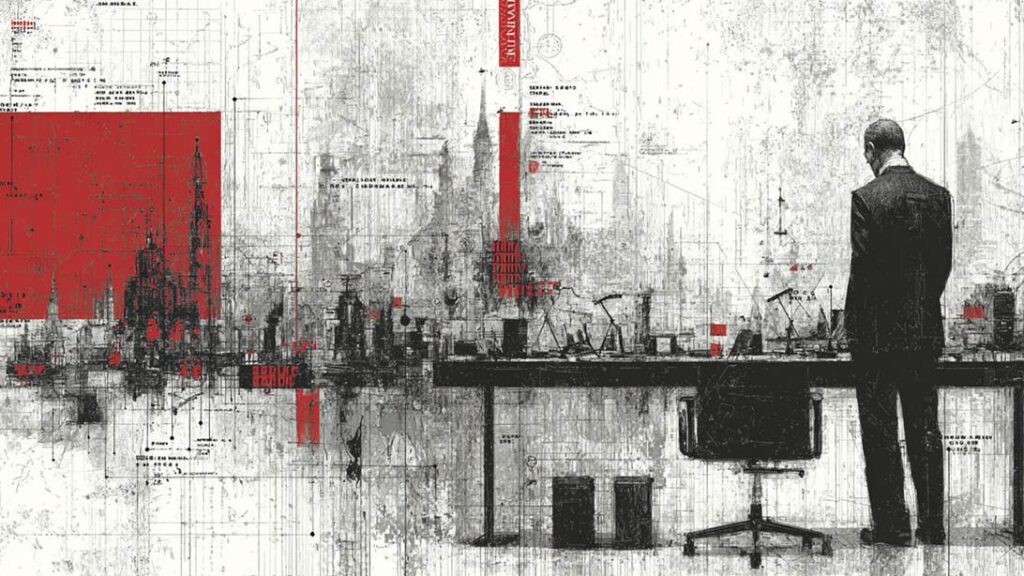
The numbers told a devastating story. The 2024 OECD Trust Survey revealed that 36% of Germans had low trust in their government – a fundamental breakdown in the relationship between citizens and democratic institutions.
The electoral results screamed of a country in crisis. The AfD’s surge to 20.8% and second place in parliament represented wholesale rejection of the mainstream political system. When one in five Germans chose a party that explicitly opposed the democratic consensus, the message was unmistakable: the system had failed them.
In eastern Germany, the AfD captured over 30% of the vote, a pattern that experts such as Professor Kai Arzheimer interpret as evidence of weakened democratic norms and institutional trust.
While international observers maintained that Germany retained “Full Democracy” status, ordinary Germans experienced something different: elections that didn’t seem to matter, institutions that protected themselves rather than citizens, and a political class that spoke of democracy while systematically undermining it.
The betrayal was complete when record turnout became evidence of democratic desperation rather than engagement. Germans voted in unprecedented numbers not because they believed in the system, but because they feared what would happen if they didn’t try one last time to save it.
As the AfD celebrated historic gains and established parties scrambled to form coalitions, the real story was written in voters’ faces: they had done their democratic duty, but no longer believed it would make any difference.
Democracy on Life Support
What Happens Next?
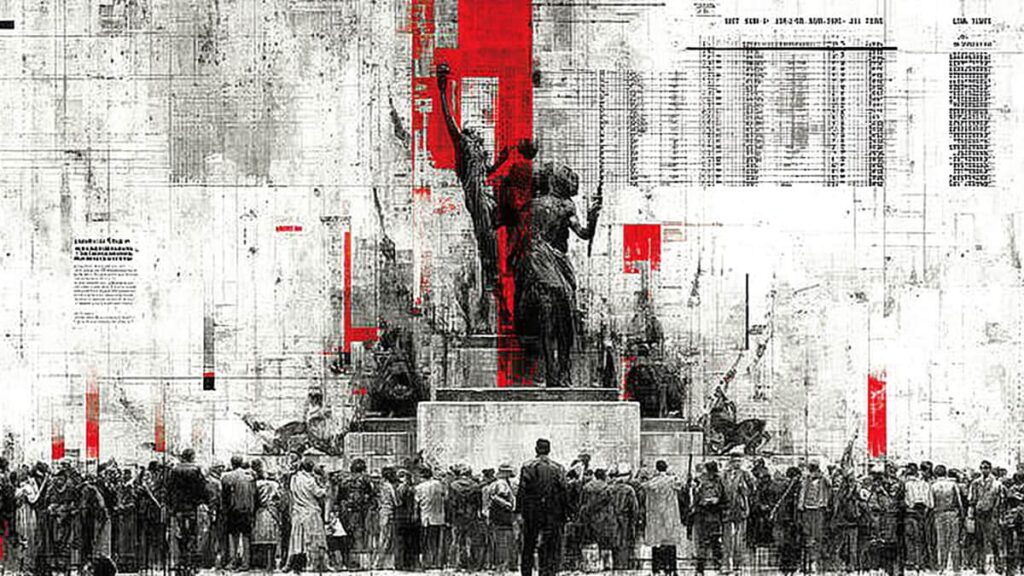
Berlin, July 2025 – Friedrich Merz sits in the Chancellor’s office, the same room where Angela Merkel once embodied democratic stability. Outside, protesters march through the streets with increasing frequency. Inside, the machinery of German democracy continues to function, but the patient is critical.
The evidence accumulated throughout this research paints a sobering picture. From the electoral chaos in Berlin to the constitutional crisis in Karlsruhe, from secret backroom dealings to the systematic manipulation of democratic processes, German democracy has suffered wounds inflicted by its own guardians.
The symptoms are unmistakable: record-high voter turnout driven by desperation rather than hope, nearly half the population expressing low trust in their government, and massive popular rejection of establishment parties. These aren’t normal political fluctuations – they’re indicators of systemic failure by the political establishment.
The question isn’t whether German democracy is in crisis; the evidence makes that undeniable. The question is whether the very people who created this crisis can solve it. Merz’s rise through corporate networks and backroom deals epitomizes everything wrong with German politics – a system where connections matter more than competence, where financial interests trump democratic principles.
The conventional parties have systematically undermined electoral integrity, constitutional compliance, and public trust while maintaining facades of democratic respectability. Their manipulation of campaign finance, exploitation of institutional advantages, and normalization of undemocratic practices have brought Germany to this breaking point.
Without fundamental reform of how the establishment operates, Germany may become the first major European democracy to collapse not through external conquest but through internal corruption by its own political class.


